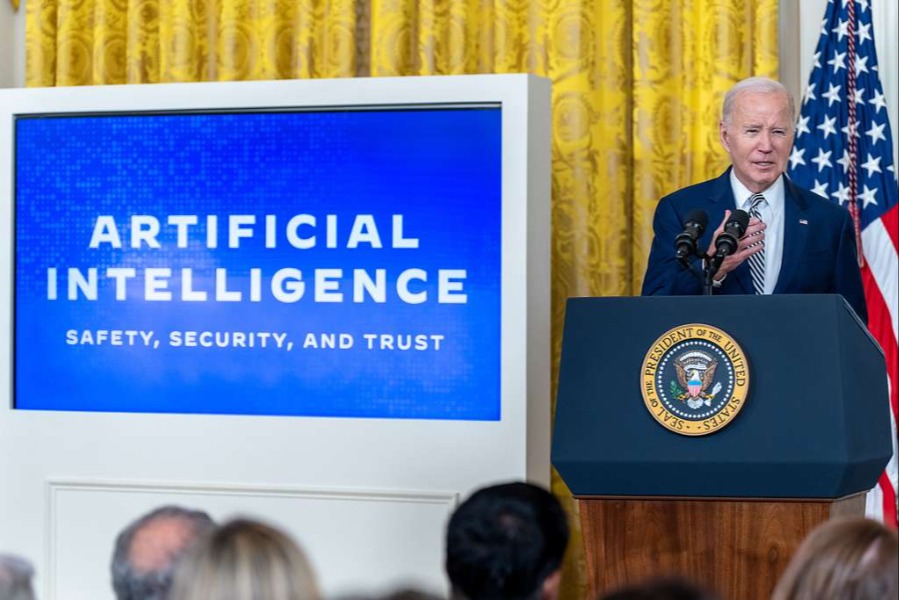Thoughts on AUMF Reform
This Thursday, the Senate Armed Services Committee is holding a hearing which will cover, among other things, the question whether to alter the 2001 Authorization for Use of Military Force. This is a question that we, Ben, and Jack addressed in a recent paper, which lays out options and recommends a statutory framework that pairs a structure for some possible future force authorizations with a robust set of checks. W
Published by The Lawfare Institute
in Cooperation With

This Thursday, the Senate Armed Services Committee is holding a hearing which will cover, among other things, the question whether to alter the 2001 Authorization for Use of Military Force. This is a question that we, Ben, and Jack addressed in a recent paper, which lays out options and recommends a statutory framework that pairs a structure for some possible future force authorizations with a robust set of checks. We’ve welcomed debate on that paper, and although we acknowledged that the time may not yet be ripe to legislate new authorities, we think it’s important to begin serious deliberation before – not immediately after – the next big crisis.
We write here to clarify some of our views expressed in that paper, as well as to highlight some issues that we hope will be considered in Thursday’s hearing.
A license for “preemptive” or perpetual war? No, and no.
Some critics portrayed our proposal as designed to promote "preemptive" attacks in violation of jus ad bellum norms. Actually, quite the opposite. The paper explicitly states (twice) that any new statutory authority should hew to international law regarding resort to (jus ad bellum) and use of force (jus in bello). The substantive criteria by which any force would be authorized should be consistent with international self-defense law.
Some critics of our paper prefer legislative inaction on the ground that new legislation would likely expand or at least prolong an otherwise-ending war. Our background assumption, however, is that the United States will continue using military force against terrorist threats for some time, either by continuing to stretch the existing AUMF, by quietly relying upon Article II authorities, or both. We can debate whether that prediction is accurate, of course. If it is accurate, however, it does raise the question whether it would not be better to have a properly-tailored statute. As a general proposition, we think legislative engagement is important to foster serious and sustained deliberation about these operations. Any legislative framework must promote sound strategic thinking, not substitute for it.
What checks should be built into any new legislation in this area?
Here are elements that we think are important to any legislative proposal that may emerge. The past twelve years of war against al Qaida show how important it is to get those principles and checks right, and they offer lessons to guide their formulation. (Note: these elements are discussed in the second half of our paper referenced above):
(1) Transparency: The President himself has emphasized repeatedly his intent to bring great transparency to this area. It is not enough to know that the government claims or has authority to act against “associated forces” of al Qaida. The associated forces concept is nebulous, and it is increasingly difficult to say just who or what counts as al Qaida these days in any event. The public should understand which groups the US government claims authority to use lethal force against (something we only catch glimpses of today thanks to the occasional leak).
(2) Oversight: It is important to make certain that Congressional oversight is operationally granular not just when the CIA acts under Title 50 but also when the military—including Joint Special Operations Command—acts under Title 10 outside of combat zones. Processes to ensure congressional oversight must go both ways: promote information-sharing with Congress and bind Congress to a serious role in joint deliberation.
(3) Avoiding Perpetual War: Once force is authorized, it is very difficult to turn off or unwind that authority. Any new legislative authorization should be subject to a sunset clause, at least with respect to its specific application to a group or region. The United States government as a whole should make clear that this is not an open-ended “global war on terror” but a cabined application of traditional self-defense to carefully limited categories of non-state threats.
(4) Substantive Limits on Strikes: Currently, the fact that some lethal targeting operations are conducted by the CIA makes it difficult to state unambiguously that these actions comply with law of armed conflict rules of distinction and proportionality. Legislation should codify these requirements.
This is not intended as a complete list of recommended elements for any new legislation, but these stand out as among the most important based on recent lessons and the need to put counter-terrorism operations on strong strategic as well as legal footing. Although not directly relevant, we also think that any new legislative framework that addresses targeting operations and use of force ought to include a lifting a counterproductive legislative constraints on civilian prosecutions of some terrorism suspects captured abroad.
Would we support these proposed constraints and checks even if there is to be no fresh or expanded AUMF?
Some critics have asked us: if your proposed constraints (including substantive limits on force, oversight mechanisms, etc.) are so great, would you support them even if they came with no new expanded force authorities. In short, yes we would. And, to be extra-clear, we'd support the new constraints without the new authorities, to the extent applicable, but not the other way around: no new authorities without the constraints. Thus we support the bill recently introduced by Rep. Thornberry, which would enhance Congressional oversight of kill/capture missions undertaken outside of Afghanistan when conducted by the armed forces, and we have heard other promising proposals being developed on Capitol Hill to ensure tighter communication and cooperation between the executive branch and congress with respect to targeting policy and applying the existing AUMF to groups associated with al Qaida.
Robert (Bobby) Chesney is the Dean of the University of Texas School of Law, where he also holds the James A. Baker III Chair in the Rule of Law and World Affairs at UT. He is known internationally for his scholarship relating both to cybersecurity and national security. He is a co-founder of Lawfare, the nation’s leading online source for analysis of national security legal issues, and he co-hosts the popular show The National Security Law Podcast.
Matthew Waxman is a law professor at Columbia Law School, where he chairs the National Security Law Program. He also previously co-chaired the Cybersecurity Center at Columbia University's Data Science Institute, and he is Adjunct Senior Fellow for Law and Foreign Policy at the Council on Foreign Relations. He previously served in senior policy positions at the State Department, Defense Department, and National Security Council. After graduating from Yale Law School, he clerked for Judge Joel M. Flaum of the U.S. Court of Appeals and Supreme Court Justice David H. Souter.






